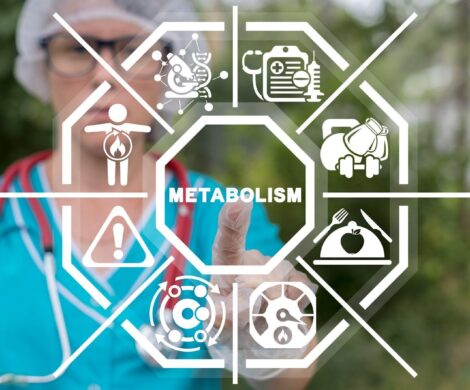How to lose weight fast naturally – Weight Loss Tips

While there are countless diets, supplements, and meal replacement plans challenging to guarantee rapid weight loss, most need any scientific evidence. There are, however, some plans backed by science that do influence weight management.
These plans include exercising, running track of calorie intake, intermittent fasting, and decreasing the number of carbohydrates in the diet.
In this study, we examine nine effective ways of weight loss.
Methods of weight loss that experimental research supports include the following:
1.Trying intermittent fasting
Intermittent fasting (IF) is a guide of eating that includes regular short-term fasts and eating meals within a shorter period throughout the day.
Several types of research have shown that short-term intermittent fasting, which is up to 24 weeks in duration, leads to weight loss in overweight individuals.
The most common alternate fasting methods include the following:
- (ADF)Alternate day fasting: Fast every other day and consume normally on non-fasting days. The revised version includes eating just 25–30 percent of the body’s energy demands on fasting days.
- The 5:2 Diet: Fast on 2 days per week, On fasting days consume 500–600 calories.
- The 16/8 method: Fast for 16 hours and eat only during an 8-hour window. For most maximum people, the 8-hour window would be nearby noon to 8 p.m. Research on this method found that eating when a restricted period resulted in the participants consuming fewer calories and losing weight.
It is most useful to adopt a healthy eating guide on non-fasting days and to withdraw from over-eating.
2.Tracking your diet and exercise
If someone needs to lose weight, they should be conscious of everything that they eat and drink every day. The most efficient way to do this is to log every item that they eat, in either a journal or an online food tracker.
Researchers concluded in 2017 that there would be billions of health app downloads by the end of the year. Of these, apps for diet, physical exercise, and weight loss were the most popular. This is not without cause, as tracking physical exercise and weight loss progress on-the-go can be an efficient way of managing weight.
One study discovered that consistent tracking of physical activity improved with weight loss. Meanwhile, a review study observed a positive relationship between weight loss and the incidence of monitoring food consumption and exercise. Even a device as simple as a pedometer can be a useful weight-loss tool.
3. Eating mindfully
Mindful consumption is a practice wherever people pay attention to how and where they consume food. This work can enable people to enjoy the food they eat and manage a healthy weight.
As most maximum people lead busy lives, they usually tend to eat quickly on the run, in the car, working at their desks, and watching TV. As a consequence, many people are hardly aware of the food they are eating.
Techniques for mindful eating include:
- Sitting down to eat, preferably at a table: Pay consideration to the food and experience the joy.
- Avoiding distractions while eating: Do not use the TV, or a laptop, or phone.
- Eating slowly: Take the opportunity to chew and savor the food. This method helps with weight loss, as it provides a person’s brain sufficient time to recognize the signals that they are full, which can serve to prevent over-eating.
- Making considered food choices: Prefer foods that are full of sustaining nutrients and those that will provide for hours rather than minutes.
4.Eating protein for breakfast
Protein can control appetite hormones to assist people feel full. This is frequently due to a decrease in the hunger hormone ghrelin and a rise in the satiety hormones peptide YY, GLP-1, and cholecystokinin.
Study on young adults has also shown that the hormonal effects of eating a high-protein breakfast can serve for several hours.
Good options for a high-protein breakfast combine eggs, oats, nut and seed butter, quinoa porridge, sardines, and chia seed pudding.
5. Cutting back on sugar and refined carbohydrates
The Western diet is frequently high in added sugars, and this has obvious links to obesity, even when the sugar transpires in beverages sooner than food.
Try nutritional Nucific Bio X4. It curbs cravings, reduces total calorie intake, improves metabolism, boosts energy levels, and burns more calories to result in weight loss.
Processed carbohydrates are gradually processed foods that no longer include fiber and other nutrients. These combine white rice, bread, and pasta.
These foods are ready to digest, and they convert to glucose quickly.
Excess glucose begins the blood and makes the hormone insulin, which increases fat storage in the adipose tissue. This provides to weight gain.
Where feasible, people should swap prepared and sugary foods for more healthful choices. Good food swaps involve:
- whole-grain rice, bread, and pasta rather of the white versions
- fruit, nuts, and seeds rather of high-sugar snacks
- herb teas and fruit-infused water alternatively of high-sugar sodas
- smoothies with water or milk alternatively of fruit juice
6. Eating plenty of fiber
Dietary fiber describes plant-based carbohydrates that it is not feasible to digest in the small intestine, unlike sugar and starch. Including plenty of fiber in the diet can improve the feeling of fullness, possibly leading to weight loss.
Fiber-rich foods include:
- whole-grain breakfast cereals, grain bread, oats, barley,
- whole-wheat pasta, whole- and rye
- fruit and greens
- beans, peas, and pulses
- nuts and seeds
7. Balancing gut bacteria
One emerging field of study is focusing on the role of bacteria in the gut on weight administration.
The human gut receives a vast number and variation of microorganisms, including around 37 trillion bacteria.
Every person has different varieties and quantities of bacteria in their gut. Some varieties can increase the amount of strength that the person harvests from food, pointing to fat deposition and weight gain.
Some foods can improve the number of good bacteria in the gut, including:
- A wide variety of plants: Raising the number of fruits, vegetables, and grains in the daily diet will result in an increased fiber uptake and a more different set of gut bacteria. People should try to assure that vegetables and other plant-based foods contain 75 percent of their meal.
- Fermented foods: These improve the function of good bacteria while restraining the growth of bad bacteria. Sauerkraut, yogurt, tempeh, kimchi, kefir, and miso all include good numbers of probiotics, which help to build good bacteria. Researchers have thought kimchi widely, and study outcomes suggest that it has anti-obesity results. Similarly, studies have shown that kefir may help to improve weight loss in overweight women.
- Prebiotic foods: These excite the growth and action of some of the good bacteria that aid weight control. Prebiotic fiber happens in many fruits and greens, particularly chicory root, asparagus, leeks, artichoke, onion, garlic, banana, and avocado. It is more in grains, such as oats and barley.
8. Getting a good night’s sleep
Numerous researches have revealed that getting less than 5–6 hours of sleep per night is linked with an increased occurrence of obesity. There are many reasons behind this.
Research intimates that insufficient or poor-quality sleep reduces down how the body converts calories to strength, called metabolism. When metabolism is less efficient, the body may store unused energy as fat. Also, poor sleep can improve the production of insulin and cortisol, which also help fat storage.
How hard someone sleeps also affects the direction of the appetite-controlling hormones leptin and ghrelin. Leptin gives signals of fullness to the brain.
9 .Managing your stress levels
Stress triggers the discharge of hormones such as adrenaline and cortisol, which originally decrease the craving as part of the body’s fight or flight acknowledgment.
However, when people are under constant stress, cortisol can remain in the bloodstream for more distant, which will increase their appetite and possibly lead to them eating more.
Cortisol indicates the need to replenish the body’s nutritional reserves from the favored source of fuel, which is glucose.
Insulin then carries the sugar from carbohydrates from the blood to the muscles and brain. If the individual does not use this sugar in fight or flight, the body will deposit it as fat.
Researchers found that performing an 8-week stress-management interference program resulted in a significant reduction in the body mass index (BMI) of overweight and obese children and adolescents.
Some ways of managing stress involve:
- yoga, meditation, or tai chi
- breathing and relaxation techniques
- allocating some time outdoors, for example, walking or gardening
Takeaway
It is necessary to remember that there are no fast fixes when it comes to weight loss.
The most reliable way to reach and sustain a healthy weight is to eat a nutritious, well-balanced diet.
This should incorporate 10 portions of fruit and greens, good-quality protein, and whole-grains. It is also helpful to exercise for at least 30 minutes every day.









